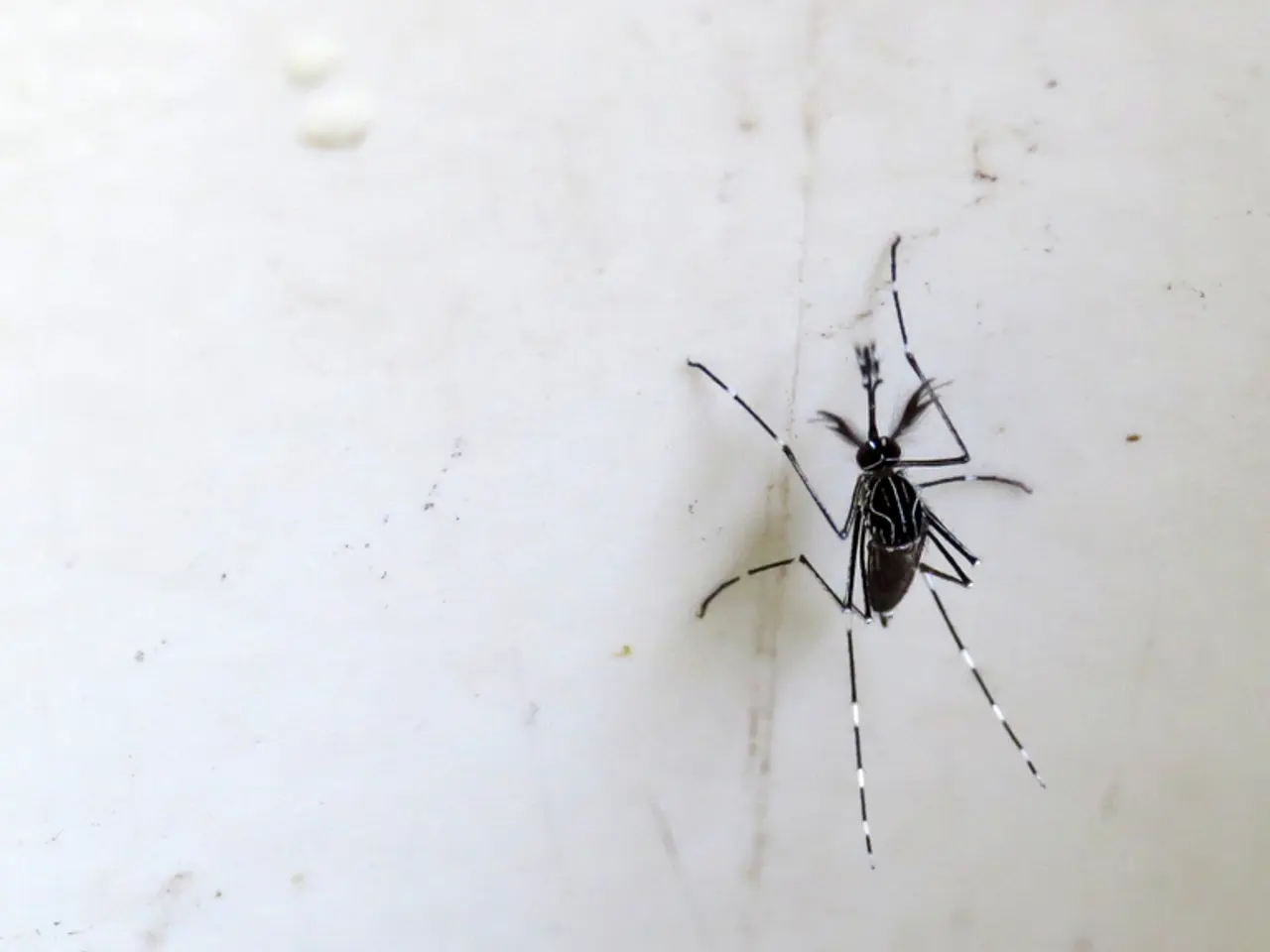Steady increase in imported chikungunya cases predicted by health expert in Hong Kong
Hong Kong Intensifies Mosquito Control Measures to Combat Chikungunya Fever
Hong Kong is taking decisive action to prevent a potential outbreak of chikungunya fever, a mosquito-borne disease, following a series of imported cases and outbreaks in neighbouring Guangdong province.
The city has implemented a range of strengthened mosquito control measures to mitigate the increased risk. These measures include setting up more mosquito traps and extending their use, application of larvicidal oils and larvicides, clearing stagnant water and overgrown grass, conducting fogging operations, leveling ground surfaces, strengthening disinfection and outreach efforts, and enhancing public education and community involvement.
Environmental management, chemical control, surveillance, public education, and interdepartmental coordination are at the heart of these initiatives. The measures are aimed at eliminating breeding sites of not only chikungunya fever but also dengue, Japanese encephalitis, and other mosquito-borne diseases.
Residents of high-risk areas, such as Lei Tung Estate and other districts like Kwun Tong and Kwai Tsing, are taking preventive measures to protect themselves. This includes applying mosquito repellent and eliminating stagnant water from their homes.
The City's efforts form part of a multiphase Anti-mosquito Campaign 2025, which aims to heighten public awareness, encourage community participation, and eliminate breeding sites of mosquito-borne diseases.
Symptoms of chikungunya fever include fever, joint pain, muscle pain, nausea, and rashes. If individuals experience serious joint pain and fever, they should seek medical treatment, as the disease's after-effects might last for several months, and some patients might develop chronic arthritis.
Dr. Joseph Tsang Kay-yan, a leading infectious disease specialist, has warned the public to avoid traveling to high-risk areas. The number of imported cases in Hong Kong may increase due to many residents living in Guangdong province, where infections are rising.
The recent heavy rainfall in Hong Kong could lead to stagnant water, favouring mosquito breeding and potentially increasing the number of chikungunya cases. Therefore, the public shares responsibility with the government in preventing the spread of chikungunya fever.
Three new cases of chikungunya fever were confirmed in Hong Kong on Wednesday, including a woman from Guangdong province's Foshan and a father and son who traveled to Bangladesh. Around 15% to 35% of infected individuals may have mild symptoms in the first seven days of the illness, which may not be easily noticed.
The public is encouraged to stay informed, take necessary precautions, and cooperate with the government's efforts to control the spread of chikungunya fever.
- Science plays a crucial role in understanding and combating medical-conditions like chikungunya fever.
- Chronic diseases such as chikungunya offer a major challenge to the healthcare industry.
- The rise of respiratory-conditions like chikungunya calls for enhanced focus on digital health and eye-health solutions.
- Hearing loss can sometimes be a complication of chikungunya fever.
- Maintaining health-and-wellness necessitates proactive measures like fitness-and-exercise and managing autoimmune-disorders.
- Climate change impacts not only our environment but also the spread of diseases like chikungunya.
- Manufacturing industries must adhere to safety protocols to prevent the growth of mosquitoes and diseases.
- Mental-health disorders can worsen with the stress of dealing with chronic diseases like chikungunya.
- Cardiovascular-health is an essential aspect to consider while managing the aftermath of chikungunya.
- The pharmaceutical industry is under pressure to develop effective treatments for chikungunya and other mosquito-borne diseases.
- Neurological-disorders can occasionally be a late complication of chikungunya infection.
- Environmental-science plays a key role in understanding the ecology of mosquitoes responsible for spreading chikungunya.
- Financial institutions should offer flexible loan options for small-business owners to invest in health-and-wellness measures.
- Energy-efficient solutions can help in reducing the breeding grounds for mosquitoes.
- Skin-conditions like rashes can be a symptom of chikungunya fever.
- Space-and-astronomy does not usually intersect with chikungunya fever, but it's still an exciting field in its own right.
- The retail sector can help promote the use of wearables and smart-home-devices that offer mosquito protection.
- Entrepreneurship can drive innovation in finding alternative solutions for combating mosquito-borne diseases like chikungunya.
- Interior-design trends can support healthier living environments that are less conducive to mosquito breeding.
- Transportation infrastructure plays a role in facilitating the control and prevention of chikungunya fever.
- Leadership in disease control requires strategic decision-making and coordination among various sectors, including health, finance, and technology.
- Diversity-and-inclusion are crucial in building effective solutions for the prevention and control of diseases like chikungunya.
- Wearables and smart devices can help monitor one's health status and provide early warning signs for chikungunya.
- Smart-home-devices can offer automated mosquito protection strategies.
- Cybersecurity threats can exist in our increasingly connected health systems, highlighting the need for robust protection against data breaches.
- Lifestyle changes such as staying informed, taking precautions, and collaborating with the government can help combat chikungunya fever.
- Small-business owners can consider ventures in personal-finance, investing, wealth-management, home-and-garden, home-improvement, or fintech to support their income and well-being while contributing to the overall health of their communities.




